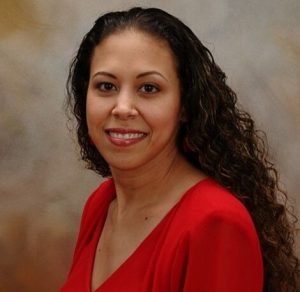Epistemic exclusion as a barrier to Justice, Equity, Diversity and Inclusion (JEDI) in academia.
October 3, 2022, 11:30 a.m. to 12:30 p.m.
259 Educational Sciences
NiCole T. Buchanan, Ph.D.
Professor, Michigan State University

Disciplinary norms are established by those who hold epistemic power and prestige due to their success working within the dominant discourse. Epistemic exclusion occurs when certain types of scholarship are defined as falling outside of a discipline’s dominant discourse. Such research is seen as violating disciplinary norms and both the research and those that study these topics are marginalized as a result. Dotson (2012, 2014) and others have argued that this type of disciplinary gatekeeping has a disproportionately negative impact on faculty of color because they are more likely to study non-traditional topics within a given field. Thus, epistemic exclusion marginalizes faculty of color because beliefs about who has subject matter expertise and what subjects are worthy of study are linked to prejudices about certain social groups. In this talk, I use data from 118 faculty interviews, 3 faculty focus groups, and a large faculty survey to illustrate formal and informal ways in which epistemic exclusion operates, and the consequences it has for the psychological well-being, job outcomes, and career trajectories of faculty of color.
Presenter Bio:
NiCole T. Buchanan, Ph.D., Professor at Michigan State University. Dr. Buchanan researches the interplay of race, gender and victimization and how they impact the nature of harassment, its impact, and organizational best practices. She also studies faculty of color and ways in which their research is marginalized (i.e., epistemic exclusion). She has been highlighted in hundreds of media outlets, is a featured speaker including TEDx and National Public Radio (NPR) and provides bias and diversity-related training and consultation (e.g., medical professionals, faculty, clinicians, human resource managers, and police departments). Dr. Buchanan is a Fellow of the Association for Psychological Science, four divisions of the American Psychological Association (Society of Clinical Psychology, Society for the Psychological Study of Social Issues, Society for the Psychological Study of Ethnic Minority Issues, and Society for the Psychology of Women), and has received national and international awards for her research, teaching, and professional service.


